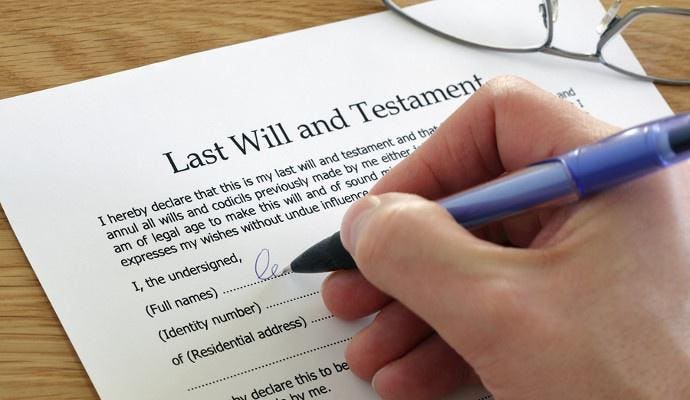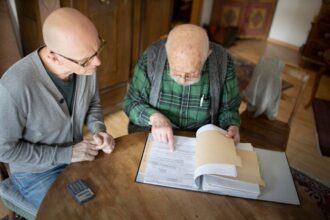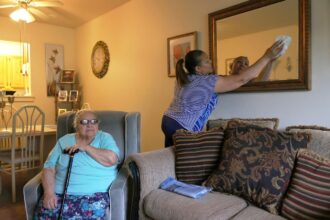Maria is a 90 year old, hardworking woman who raised four kids and some grandkids as well. She quit her humble work as a housecleaner when her husband fell ill. She stayed home to care for him. She also helped raise a grandson, when her son and his wife split up and left him to his grandparents. None of her other adult children lifted a finger to help care for their ailing father. He passed away at home. Now Maria is frail and needs daily help herself. Where are her kids?
One son had already taken advantage of Maria, borrowing money he never paid back. Another took her bank records and refused to return them. Maria has memory loss but she still pays her own bills and keeps track of her money. The grandson she raised has lived with her all his life. He stepped up and cared for his grandpa. Now her grandson is caring for Maria too. He has no relief, and never gets any help from his parents, aunts or uncles.
Maria is very angry with her kids and other relatives. During the years when she and her husband had the opportunity, they saved and invested carefully. They had a rental home and a paid for primary residence. One son stole the deed to her rental property and sold it without Maria’s permission. The son kept the proceeds and refused to give Maria any records. All Maria has left for decades of working and saving with her husband is the house she lives in. And her greedy kids expect to receive it when she passes.
Maria went to a lawyer to change her will and trust. Originally, her assets were going to be divided equally among her four children. Maria does have memory loss but she could still have what the law calls “testamentary capacity”. That is basically, the ability to understand what you have, who you want to give it to after you die, and what the consequences are of doing that. Her lawyer had Maria tested by a psychologist and the doctor determined that Maria does, indeed have testamentary capacity. In other words, she is clear-minded enough to change her old will and trust.
Maria is changing it to completely disinherit all four of her kids. She is going to give her house upon her passing to her loyal and caregiving grandson, who never asks for anything from her.
As part of my work at AgingParents.com, I sometimes evaluate elders who want to change a will or trust to do something unusual with it, as a necessary service to their estate planning attorneys. I evaluated Maria. There is absolutely no evidence of fraud in her decision. There is no pressure nor “undue influence” on her from her grandson. He has not asked her to give him the house, nor money nor anything of value. He is a somewhat naive and innocent person in the picture.
The Takeaways: What NOT to do so you won’t get disinherted
If you don’t want your aging parent to build up resentment toward you, understand that the elder can do whatever they want with their assets. No potential heir has an automatic right to any inheritance just because of being a relative. There are exceptions when the elder dies without any will.
These awful things can get you disinherited fast.
- Borrow money and don’t pay it back. They are going to remember this most of the time. Dishonesty likely makes an older adult angry. Even if they don’t recall the exact amount borrowed, they will recall the feeling of being taken advantage of.
- Don’t bother with caregiving the elder needs. If you never show up, never help, never offer any physical, emotional or financial support for caregiving, your aging parent will see this and will likely also get angry about that.
- Cheat the elder because you can get away with it. Maria’s son sold her rental house and kept the money. Maria is not in a position to sue her son nor to try to get authorities involved. She can’t afford an elder abuse lawyer. The son got her asset and proceeds. His theft had no repercussions when he did it. But it does when it comes to Maria’s will and trust.
None of Maria’s four kids will be able to get anything more from her as an inheritance. She is justifiably angry with all of them. They don’t deserve a thing, she says. She is clear enough in her thinking to be certain of what she wants with her will and trust and she will get what she wants. Her lawyer is very careful in creating a new estate plan, involving a doctor to determine her testamentary capacity. And she had another lawyer look over the plan and interview Maria and her grandson to rule out fraud or undue influence. She also made a video record of Maria stating why she is going to disinherit her offspring. Maria is secure and exercises her legal rights. Her grandson will ultimately benefit from being an unselfish, caring heir.
Read the full article here










